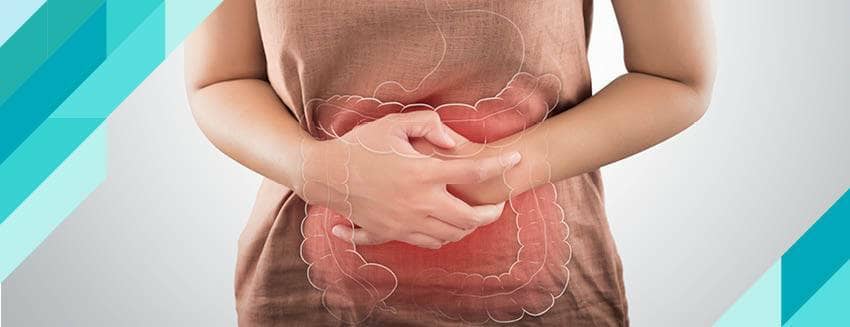
Ulcerative colitis and Crohn's disease, defined as "inflammatory bowel disease (IBD)", occur mysteriously. Stating that these diseases are related to each other due to unknown causes and common complaints, experts emphasized that balanced nutrition and avoiding unnecessary antibiotic use should be avoided to prevent intestinal diseases.
Üsküdar University NPISTANBUL Hospital General Surgery Specialist Asst. Assoc. Prof. Dr. Ahmet Murat KOCA made important evaluations on ulcerative colitis and Crohn's disease.
Assist. Assoc. Prof. Dr. Ahmet Murat KOCA said, "Two mysterious diseases called ulcerative colitis (UC) and Crohn's disease (CH) stand out and are defined as inflammatory bowel disease (IBD)" and stated that these diseases are related to each other due to an unknown cause and development, common complaints and overlapping structural features.
[habersade=general-surgery]
Ulcerative colitis is mostly seen in developed countries
Stating that ulcerative colitis is mostly seen in developed countries, Özer said, "Seasonal changes are observed in the activity of the disease and the onset and recurrences are higher in August and January. Although the cause of ulcerative colitis is unknown, its frequency in industrialized countries and the increase in incidence in those who move from low risk areas to high risk areas suggest environmental effects. Fiber-poor diet, chemical food additives, refined sugars and cow's milk are thought to predispose. However, their exact role has not been established."
Family history plays a big role
Stating that family history is the most important risk factor for these diseases, Asst. Assoc. Prof. Dr. Ahmet Murat KOCA said, "Both UC and CH are more common in women who use oral contraceptives than those who do not" and continued his words as follows
"Clinical Findings: UC and CH often present with similar findings. Both may present with diarrhea and sticky secretions. Although rectal bleeding is seen in CH, it is more common in UC. Sudden onset of UC is not as severe as in CH, although patients complain of abdominal pain. Perional diseases are rare in UC but may be the only finding in CH. Fissures, fistulas and abscesses occur more frequently in CH.
Ulcerative colitis leads to colocteral cancer
Endoscopic examination of the bowel and rectum is essential for the diagnosis of inflammatory bowel disease (IBD) of the intestine. One of the most important consequences of UC is the development of colorectal cancer. The most important risk factors are long duration of disease and severity of inflammation. The risk of cancer increases with the duration of the disease. It reaches 25% in 25 years and 65% in 40 years.
Medical treatment of ulcerative colitis has improved a lot. Treatment groups such as aminosalicylates, corticosteroids, immunomodulators, biologics have significantly improved the efficacy and chronic maintenance of acute colitis attacks. Surgical treatment is indicated in cases of resistance to treatment, dysplasia-carcinoma of the colon, massive colonic bleeding, toxic megacolon.
Symptoms of Crohn's colitis: Abdominal pain, diarrhea and weight loss
"The three most accepted theories in Crohn's colitis (CH) are the response to injectable agents, defective mucosa that increases exposure to antigens, and abnormal host response to ingested nutrients," said Asst. Assoc. Prof. Dr. Ahmet Murat KOCA, "The most important thing to pay attention to here is the substances presented as unnatural deconstructed industrial food. Smoking also appears to be a risk factor for CH, oral contraceptive use increases the risk. The characteristic triad of symptoms is abdominal pain, diarrhea and weight loss. Frequent viral gastroenteritis or irritable symptoms include anorexia, fever and recurrent aphthous ulcers. The presence of fistula, fissure, edematous skin debris in the anus suggests the diagnosis of CH. It is important to combine diagnostic examinations such as clinical, colonoscopy and radiography in the diagnosis."
Pay attention to these recommendations to prevent intestinal diseases!
Assist. Assoc. Prof. Dr. Ahmet Murat KOCA said, "Medical treatment is more prominent in the treatment of Crohn's colitis. Treatment is organized as acute disease treatment and maintenance treatment according to the severity of the disease. In cases such as resistance to treatment, intestinal obstruction, intra-abdominal abscess, fistulas, fulminant colitis, toxic megacolon, massive bleeding, cancer, growth retardation, surgical treatment is indicated:
1. "Natural, balanced food intake
2. Not using unnecessary antibiotics
3. Avoiding foods that are presented as chemically adulterated, deconstructed food
4. Do not avoid colonoscopy
5. Absolutely early referral to a physician, health institution and early diagnosis and follow-up should be done without neglect."

